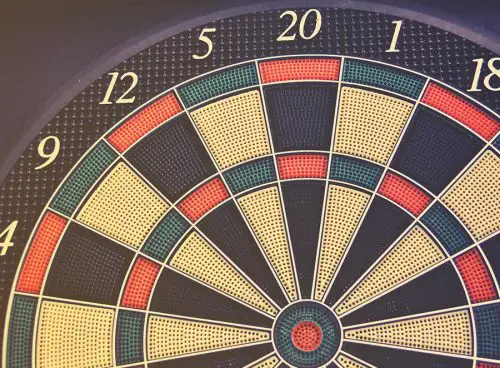How To Be Less Sensitive In Five Steps?: Too often, being sensitive is associated with being negative. But is that so?
It has not been long since I found for High Sensitivity to be an actual term in psychology. Since then I have had a growing feeling of belonging to who I am.

Inspiring your journey, one story at a time. #LifeFalcon.
Rushing into decisions, criticism, and frequent changes in life do not come as easy to everyone. To be a highly sensitive person is to notice and feel what most others go by without effort.
Seeing the look on everyone’s face when walking into a room and feeling every emotion, not being able to stand the loudness around you, and the need for a place to withdraw to and decompress after a tiring day leaves you wondering about how you can be less sensitive than you are.
About 15-20% of the people are highly sensitive, which makes it not that much of a rarity.
But being able to drag yourself through the day and functioning with everything around you in harmony are two separate things.
Table of Content
Becoming Less Sensitive

Highly sensitive people are as much prone to creativity and innovation as they are to depression and anxiety, which is why keeping the emotions in check, is always a big question mark.
Overreaction can affect your relationships and work-life if not addressed properly.
Since there is nothing wrong with being a highly sensitive person there is no need of feeling disconnected.
But here are a few ways that will help you keep your emotions in check when needed and prevent them to take control over you.
Acceptance

It always begins with the acceptance of who you are. You have lived long enough to know what upsets you by now and finding yourself here at this article shows suspicion.
Now before jumping to conclusions (as you always have) take this opportunity as a first step towards your transformation.
Find out how normal people behave and react, and what sets you different from them.
Because of the general “Negative” perception that you have created for yourself of being over-reactive and oversensitive, you fight the feeling instead of accepting it.
Instead of avoiding situations where you might overreact or fight yourself to stay calm during them, you need to settle in the fact and find calmer ways of changing your thought pattern.
Break a situation down, picture the worst that could happen. If the worst thing that you imagined is something you can easily accept and handle then why overreact?
And if the pictured situation is not something you can tackle yourself, always ask for the assistance of other people and seek help.
A great deal of acceptance also comes from the fact that we often treat ourselves differently than others. Think of yourself as your best friend and come up with the same advice and suggestions as you would for them.
Once you’ve started to accept yourself for who you are and try functioning according to that, you will notice for everything else to get calmer and less noisy.
Change Your Surroundings And Habits

Highly sensitive people are not only emotionally sensitive but they have a high physical sensitivity as well.
Lack of concentration and irritation from the temperature being too high or too low, background noises, simulative environments, bright lights, lack of sleep, poor diet, and deadlines amplify the feelings of overreaction and sensitivity.
Sleeping less than 6 hours a day makes you moody, irritated, lack productivity and concentration. Now imagine how that would affect your already sensitive life!
Plan your day so that you get enough sleep time and don’t have to rush through your breakfast in the morning, or even skip it at times. Some minor changes in a few habits take you a long way to feel calmer.
Having a nutritious diet helps regulate your blood sugar levels and makes you feel less grumpy. Nurture your body for good health and you will cut down a great deal of stress and anxiety.
Coming over to the external factors, is a whole night out drinking with friends really a good idea if you have to deal with an emotional landslide the next day?
Avoidance is not the key but taking in a dose of it that you can handle it, just take off when you’ve had enough for the night and retire to your personal space.
Simulative environments with intensive lighting, chatter, and loudness will almost always trigger your sensitivity.
Bring ambiance into your house, or at least your room. Get dim lighting for your room and have low background music playing at times of work and concentration to cancel the unwanted noise.
Limiting the external factors that affect your emotional side will leave you with enough thought room to figure situations out and self-reflect.
Journaling

The key to journaling here is not to write down about your day but as a means of expressing your feelings daily. Daily being the keyword here.
The idea of journaling often leaves us feeling vulnerable, whether it is in a personal diary or in a computer, which is a helpful way of doing so is to rip apart what you have written as soon as you write it.
It is not for documentation or making sense of your scribbling later on to notice a pattern, but it is for your heart to feel lighter.
It is taking out your emotions on a piece of paper instead of other people and yourself.
What journaling also does is help change your perspective about you and everyone else. Highly sensitive people often have to think of themselves against the world, which is again a perspective.
Somewhere down the line in your habit of daily journaling, you will be able to pinpoint many situations based on mere assumptions than facts.
The next time you will find yourself in a similar situation, you will quickly jump perspectives to see everything with a neutral mind. You don’t have to force yourself into these, they are more like Déjà vu.
The word of stress again is “daily”. You have to remember that it does not make you vulnerable so your ego takes a back seat.
Mindfulness

Mindfulness is the most effective way of obstructing your autopilot mode in emotional situations. Mindfulness pulls you out of the circle of overthinking and brings you to the present.
The state of being mindful of the present and not obsessively thinking about one of your emotional episodes leave you much calmer than before and hence, raises your self-esteem.
Mindfulness, however, is not a skill that can be acquired immediately. You will surely be able to spot the difference since the very first session but it takes weeks and even months to really get the hang of it.
You need to give yourself time and space to develop the skill because, through this form of meditation, you wire your brain into a different thought pattern.
Your previous thought process gets in the driving seat whenever you are having a sensitive or emotional episode. The wired reaction to which is either to overreact, avoid, or dive into self-pity.
You learn to presently be in the moment and if you do overreact or withdraw, you start doing it willingly instead of just being driven into it.
You can also include several displacement techniques if it is hard to focus at times. It is a practice to pull you out of your predetermined thoughts when you notice yourself being taken away by them.
The act of holding ice, focusing on your breath, or taking a few back strides help you recall the state of calmness and prevent sleepwalking through situations.
This control over situations, whether or good or bad, helps settle the fact that you do have the power of doing as you please.
This raises self-confidence and you can eventually try different acts in these situations.
Ask For Feedback

Self-accountability is a healthy practice, but it also has us being too hard on ourselves.
Involving others in your daily affairs by asking for feedback gives you a more realistic picture of events than your imagination.
You can ask your colleague after a conference about how you did, keep your lecturer informed about your progress in an assignment, or asking a friend after an emotional episode if it had not been “Too Much”.
Since you have been living with the belief of being oversensitive and over-reactive for too long, the standards that you set for normality are naturally very high as well.
Once you get your feedback, picking up the positive aspects, and working on those will develop a healthy routine.
If your pitch had not been impressive at work or your lecturer points out too many mistakes in the project, work on them. There is never a personal vendetta as it seems and sometimes there is just a need for improvement.
Taking criticism and feedback from others develops an understanding of learning as you stop going into a situation thinking you know it all, and then get shattered when it proves to be wrong.
As we know how negative criticism and conflict are the worst triggers of oversensitivity, being familiar with them through the day will help you look less gravely at them.
Asking for feedback also saves you the many hours you’ll end up thinking about a certain situation. Sometimes, a little assurance is all we need from others.
How Do I Know If I’m Highly Sensitive?

This begins with the wonder of knowing whether everyone thinks too deeply about the random things in life. If you are highly sensitive, you find yourself taken away about the deep thoughts of existence and spend a little extra time on a beautiful painting than an average person.
Being highly sensitive can also be a sign of not being able to watch violence and gore. Breaking into tears over many random emotional situations, whether in a movie or daily life. You’re empathetic towards others and try feeling the pain and suffering of others as your own.
Is Being Highly Sensitive A Weakness?

A highly sensitive person is commonly understood to be the “weaker” out of the lot. But breaking into tears over small things, withdrawing to a safe quarter, or avoiding certain simulative experiences does not make a person weak, or strong even for that regard.
A highly sensitive person is just as much a normal person as anyone but with a much deeper emotional connection to things.
It can only be a weakness if it starts to obstruct your daily way of living by ruining relationships and work. But generally, the world needs the empathy and strength that a highly emotional person has.
How Do Highly Sensitive People Survive?

A highly sensitive person can sail through the hardships and challenges of life by making but a few minor changes in his thought processes and habits.
Starting by adopting a healthy lifestyle to de-clutter and cut off many triggers to hypersensitivity, a highly sensitive person can reduce getting the emotional episodes during a day.
One cannot completely abandon their being and so having a safe place to decompress the emotional build-up helps organize themselves. Finding other means of letting the emotions out as journaling or by seeing a therapist helps lighten the burden a lot.
Is Being Highly Sensitive A Disorder?

Contrary to the common belief, being highly sensitive is not a mental disorder. 15-20% of the people are highly sensitive and just means having a low threshold for emotional intake.
It can show itself in physical triggers in simulative and noisy environments or mental triggers when taking in too much information.
Highly sensitive people are more prone to ADHD because of the inability to focus on a present situation due to past experiences.
There are however practices and therapies that help calm the outbursts of high sensitivity and make your functioning in your daily life as an average person.
How Do I Stop Being Highly Sensitive?

You can organize yourself to take control of your emotions but cannot change the feeling of them altogether. Going through a behavioral therapy by a professional or making a few minor changes in your daily routine will change the way you react to the feelings.
Feeling these strong emotions are never a bad thing, it is always the way you react to them. If your go-to reactions are mainly negative then working on changing your reaction to them will prove to be more helpful.
Conclusion
Being sensitive does not have to mean a bad thing at all. It only means you are a little more observant and emotional than others.
You take time to take in the emotions and energies around you, and you do it for life rather than an occasional mood.
It is when your overly-sensitive side starts to get the better part of you in relationships and work that you should start tracking it down.
The above five steps will hopefully give you the insight you need and some tools to change the way you think about certain things. But if it is too severe to battle on your own, seeking out therapeutic help is always a good option.
A therapist will have you go through Cognitive Behavioral Therapy and certain mindfulness sessions to break down the existing thought circle and open you up for new experiences.
Life is always good with emotions in it, but them taking a negative direction will often leave you broken than complete.



















